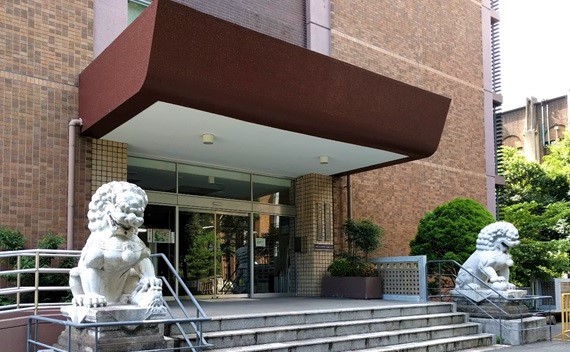About the Institute
The Institute for Advanced Studies on Asia
Since its establishment in 1941, the Institute for Advanced Studies on Asia has grown into one of Japan’s most distinguished centers of Asian studies.
During its first two decades, the Institute mainly focused on the politics, economics, history, and the culture of East Asia, especially China. Since the early 1960s, it has expanded its domain of research beyond China to include South (including Southeast) and West (including Central) Asia. Today, the Institute consists of five departments – the Departments of East Asian Studies, South Asian Studies, and West Asian Studies, Pan Asian Studies, and Pioneering Asian Studies – and a dedicated Office for International Affairs. The research staff is composed of over thirty specialists in humanities, social sciences and engineering, including such disciplines as history, literature, religious studies, art, political science, law, economics, geography, anthropology, and architecture.
The Institute has continuously emphasized interdisciplinary research, combining analyses of documentary materials and field research. Since the 1950s, it has conducted various kinds of field research. The Iran-Iraq Archaeological Expeditions, the Mission for Indian History and Archaeology, and the photographic collection of Chinese paintings are representative example of such activities. Today, virtually all Institute members have day to day academic contacts with international academic institutions and conduct field research throughout Asia. By establishing academic exchange agreements, the Institute has increased academic contacts with various research institutions in Asia, including the Center of Asian Studies at the University of Hong Kong, Fudan University in Shanghai, the Department of Arts and Social Sciences at the National University of Singapore, and the Center for Japanese Studies, University of Indonesia.
The Institute has one of the best and the largest libraries for Asian studies in Japan. Its collection of Chinese books is especially well-known internationally. In addition to the Library, in order to facilitate the use of documentation research materials for Asian studies, the Institute established the Research and Information Center for Asian Studies (RICAS). The center is aimed at collecting and facilitating the use of various forms of research materials in addition to text-based materials.
Awards and honours
Order of Culture
1991. (江上 波夫) EGAMI Namio
1998. (山本 達郎) YAMAMOTO Tatsuro
2001. (中根 千枝) NAKANE Chie
2017. (斯波 義信) SHIBA Yoshinobu
Medal with Purple Ribbon
1969. (江上 波夫) EGAMI Namio
1974. (川野 重任) KAWANO Shigeto
1975. (小口 偉一) OGUCHI Iichi
1976. (窪 徳忠) KUBO Noritada
1979. (深井 晋司) FUKAI Shinji
1984. (鈴木 敬) SUZUKI Kei
1989. (中根 千枝) NAKANE Chie
2012. (田中 明彦) TAKANA Akihiko
2017. (羽田 正) HANEDA Masashi
Order of Culture
EGAMI Namio (江上 波夫), 1991
YAMAMOTO Tatsuro (山本 達郎), 1998
NAKANE Chie, (中根 千枝) 2001
SHIBA Yoshinobu (斯波 義信), 2017
Medal with Purple Ribbon
(江上 波夫), 1969
(川野 重任), 1974
(小口 偉一), 1975
(窪 徳忠), 1976
(深井 晋司), 1979
(鈴木 敬), 1984
(中根 千枝), 1989
Takana Akihiko (田中 明彦), 2012
(羽田 正), 2017
Persons of Cultural Merit
TSUJI Naoshiro (辻 直四郎), 1978
EGAMI Namio (江上 波夫), 1983
YAMAMOTO Tatsuro (山本 達郎), 1986
KAWANO Shigeto (川野 重任), 1993
NAKANE Chie (中根 千枝), 1993
ITAGAKI Yuzo (板垣 雄三), 2003
SHIBA Yoshinobu (斯波 義信), 2006
Japan Academy Prize
NIIDA Noboru (仁井田 陞), 1934
UNO Enku (宇野 圓空), 1942
YAMAMOTO Tatsuro (山本 達郎), 1952
SUDO Yoshiyuki (周藤 吉之), 1956
FUKUSHIMA Masao (福島 正夫), 1963
KAMATA Shigeo (鎌田 茂雄), 1976
ARA Matsuo (荒 松雄), 1978
IKEDA On (池田 温), 1983
SUZUKI Kei (鈴木 敬), 1985
TANAKA Issei (田仲 一成), 1993
Japan Academy Medal
SATO Jin (佐藤 仁), 2014
JSPS Prize
SATO Jin (佐藤 仁), 2013
BABA Norihisa (馬場 紀寿). 2018
Tang Prize
SHIBA Yoshinobu (斯波 義信), 2018

